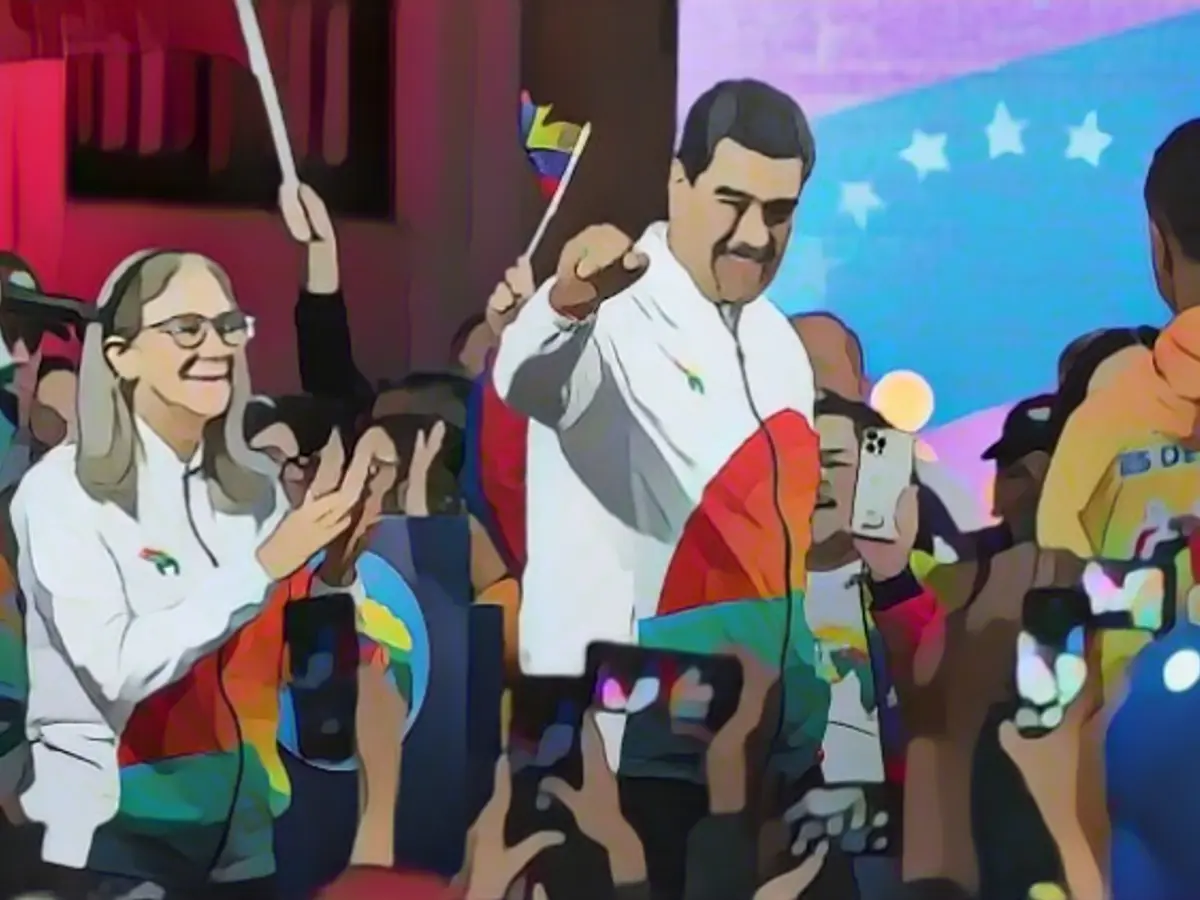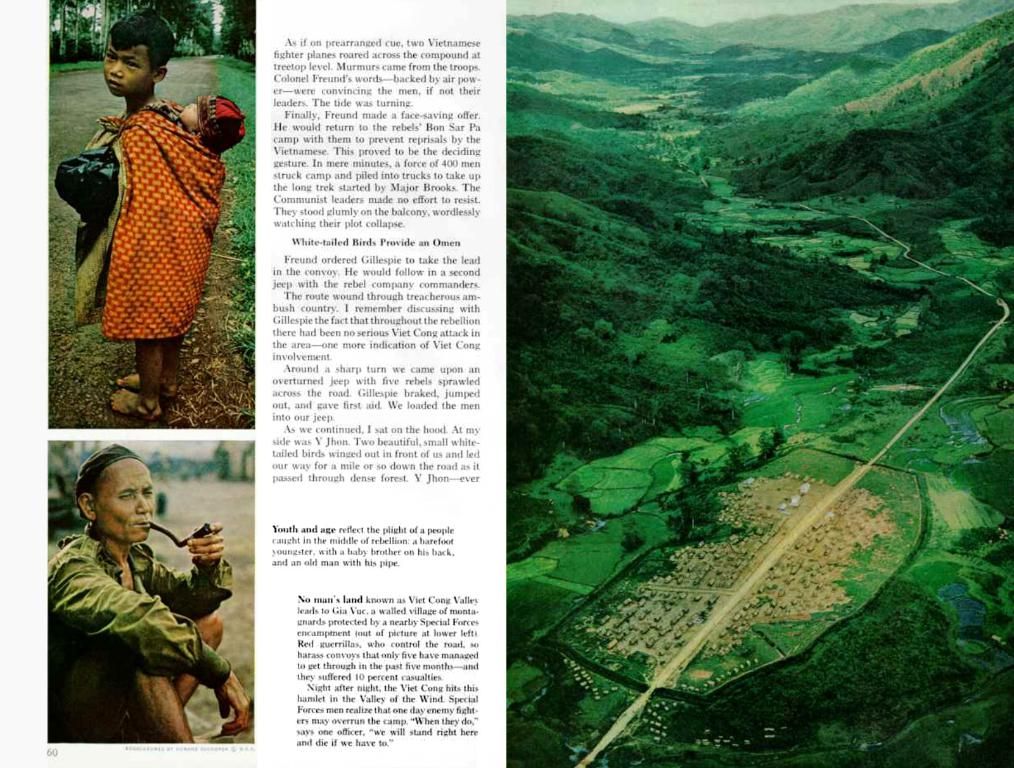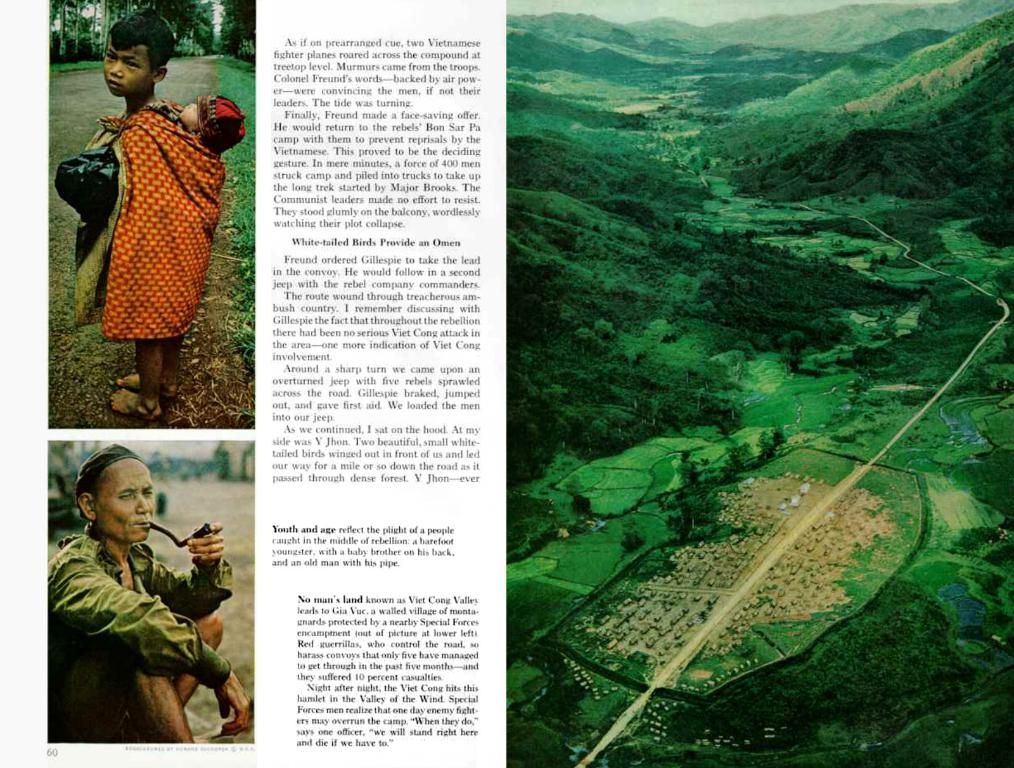Venezuela Proposes To Annex Guyana's Rich Essequibo Region
The volatile political landscape of Venezuela never fails to surprise, with its president, Nicolás Maduro, once again stirring the pot. This time, he's proposing to annex a significant portion of neighboring Guyana's territory – the resource-rich Essequibo region. And the Venezuelan populace firmly supports this move, driven primarily by economic motives.
In a controversial referendum, the Venezuelan people have reportedly given their seal of approval to their government's claim on the Essequibo region. The results? A whopping 96% of voters, according to the National Electoral Council (CNE), favored this proposal. Close to 11 million out of some 21 million eligible voters participated in the non-binding Sunday poll, resulting in a turnout of around 51%.
CNE president Elvis Amoroso praised the outpouring of "yes" votes, declaring it a "clear and overwhelming victory" for the referendum. While the electoral authorities extended polling hours, the outcome remained resoundingly positive, with support for Maduro's initiative ranging between 95.4% and 98.11% across the five questions posed in the referendum.
Maduro triumphantly addressed his supporters in Caracas' Plaza Bolívar, post-celebrating the results. However, clarification regarding the government's subsequent actions has yet to surface. Previously, the United Nations International Court of Justice (ICJ) had issued an order urging Venezuela to steer clear of any actions that would alter the existing status of the disputed region.
Guyana's Sovereignty Challenged
Guyana's government ended up referring to the referendum as a threat to its safety and tranquility. Guyana's President Irfaan Ali, addressing a crowd in the capital city Georgetown, vented his hardline stance, assuring the populace that the nation's borders continued to remain secure. Tens of thousands of people took to the streets of Georgetown, displaying T-shirts emblazoned with the slogan "Essequibo is Guyana's," forming human chains to symbolize unity with their government.
The Essequibo region, approximately 160,000 square kilometers – over two-thirds of Guyana's total land area – is in question. A tribunal in Paris in 1899 set the border lines, originating from diplomatic proceedings initiated by the USA and Great Britain. Venezuela, however, alleges a 1966 agreement with the United Kingdom, giving them the right to negotiations, and casting doubt on the tribunal's original ruling.
Escalating Geopolitical Tensions
The recent oil boom in the region has undeniably been a game-changer for the territorial tussle. Guyana now boasts oil reserves of over ten billion barrels after an October 2023 discovery, surpassing those of oil-rich countries like Kuwait and the United Arab Emirates. This has piqued Venezuela's interest in the region, leading to increased tension and diplomatic efforts to reach a peaceful resolution.
Exactly what this resolution might look like remains to be seen. While the international community has largely rejected Venezuela's annexation referendum and its efforts to assert control over the Essequibo region, the dispute continues to smolder – potentially with far-reaching consequences that could ripple across the region.
Further Reading
The escalating tension in Venezuela's boundary dispute with Guyana over the Essequibo region has grown more intense following the overwhelming support by the Venezuelan populace for the annexation of this oil-rich territory. The disputed region, which could potentially hold vast oil reserves, has captured the attention of both governments and the international community. With major oil discoveries occurring in October 2023 and the ICJ proceedings, the future of the Essequibo territory remains uncertain and subject to intense geopolitical negotiations.








